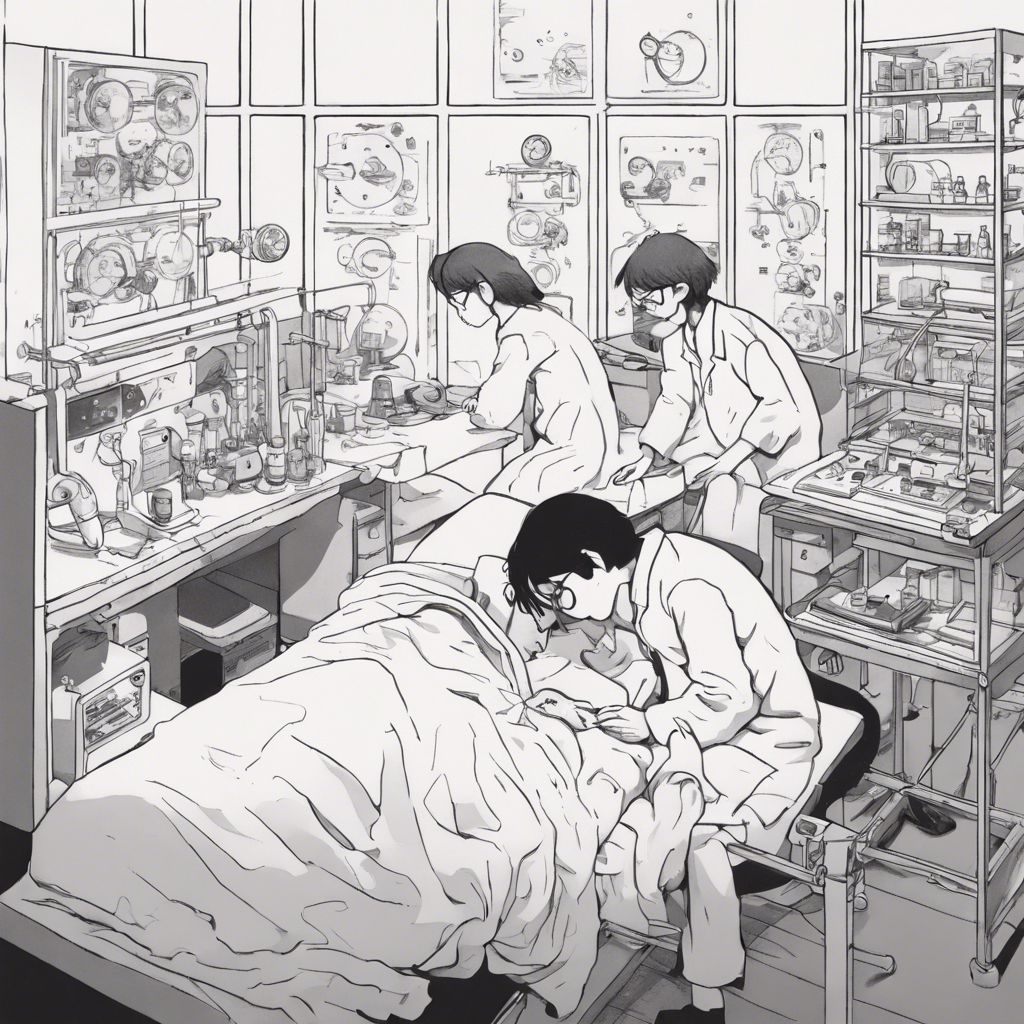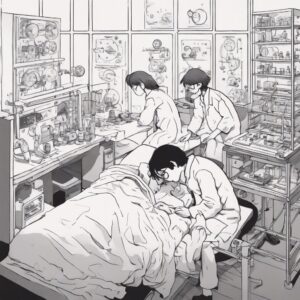Sleep is a little like when you plug your phone in overnight for an update. You know how your phone needs that vital time to recharge its battery, perform a thorough virus scan, and install those essential software updates? Well, sleep is the body’s version of that essential maintenance. It helps us rest and repair, update our hard-drive (our brain) and help run our virus software (general diagnostic scan to keep everything in check).
This nocturnal reboot involves a series of stages (or cycles), each with its own unique function, like different apps running in the background. It’s a bit like a tech festival, with each stage offering a different tool for keeping our central processing units (aka our body’s) running smoothly.

Sometimes it’s not about how long you do something, but getting the right results.
Why should you care about these things called cycles?
Sleep deprivation is not just about the time spent asleep – but the amount of the different types of sleep you get. Basically if you get your 7-8 hours of sleep and still feel crap – you should care about sleep cycles.
Knowledge of your sleep cycles and sleep in general helps you:
- Understand what the hell people mean about “sleep quality”
- Identify sleep problems in yourself and others
- Optimize your sleep and maximize the benefits – “smarter, better, faster, stronger” – as per the French legends of house music
- Interpret sleep data – if you are loaded and have a fancy watch / ring / strap and / or bed topper.
What are sleep cycles?
As we sleep, we cycle through different phases of brain and physiological activity to provide all the varied benefits of sleep. On average, each full cycle takes about 90-110 minutes to complete. The length of time taken up by each part of the cycle will vary with individuals, and vary depending on the time of the night.
Earlier in the night your sleep cycle consists of more deep sleep, whilst in the early hours of the morning REM sleep takes up more of your sleep. This explains why the time you go to bed does matter.
In Summary:
- a sleep cycle is usually 90 – 110 minutes where the body goes through the 4 stages of sleep
- The first 3 stages are Non-REM (Rapid eye movement) sleep, followed by REM sleep in the cycle.
Quick summary of the stages of sleep
Non-REM 1: Lightest stage / “The Transition”
- Brain waves start to slow, heart rate slows, muscles start to relax
- As muscles relax some people twitch as they transition to ‘True Sleep’ (really annoying if your partner does this!)
- Perception of the outside world still present so you are easily woken in this phase

Non-REM 2: True but light sleep – “The Library” – 45-55% total sleep time
- Your body temperature starts to drop, your heart continues to slow down and breathing becomes slow and consistent
- Your brain starts to organize or file away memories. It transfers important and emotional stuff from short term memory to long term memory in “the library”
- Your perception of the outside world decreases and it becomes harder to wake up
- This phase of the sleep cycle makes up the majority of your total sleep and is important in itself but also because it acts as a transition to further deep phases

Non-REM 3: Deep NREM sleep – “The Repair Shop” – 15-25% of total sleep time
- Most restorative phase physically – where the body grows and repairs, and the slow brain waves act to flush out rubbish
- This phase of deep sleep regulates the hormones which control muscle and tissue growth, immune function, weight management. The main contributing hormones are below and I go into more detail of these hormones in the deep dive of sleep phases.
- Growth and repair (Growth hormone), Appetite hormones (Ghrelin and Leptin), immune function (Cortisol), weight control / energy management (Insulin)
- Slow brain waves work in a synchronized way across the whole brain to help flush the CSF (cerebrospinal fluid) in the brain from adenosine and other waste products that can lead to low grade but consistent inflammation. Basically clearing your hard drive of all those useless downloaded files that slows down your laptop.

REM: Rapid eye movement sleep – “The Theatre” – 20-25% of total sleep time
- Brain becomes highly active and your eyes move rapidly underneath your closed eyelids (i.e. Rapid eye movement sleep)
- This is the dreaming phase of sleep which helps your brain form new connections from what you learnt during the day, as well as process the events and accompanying emotions
- Your muscles are paralyzed here so you don’t act out that weird sh1t in your dreams. Like you are sitting still in a chair watching – “The Theatre”
- Some computer dorks may view this almost like a software update of your computer
In summary
Sleep cycles play a crucial role in understanding sleep quality and optimizing its benefits. The stages of sleep include NREM 1 (light sleep), NREM 2 (true sleep), NREM 3 (deep sleep), and REM (dream sleep). Each stage has distinct physiological changes and contributes to memory consolidation, physical restoration, hormonal regulation, and emotional processing. These stages repeat in cycles throughout the night, with REM sleep becoming more prominent in later cycles. Understanding sleep cycles helps identify sleep problems, interpret sleep data, and maximize the benefits of sleep.




